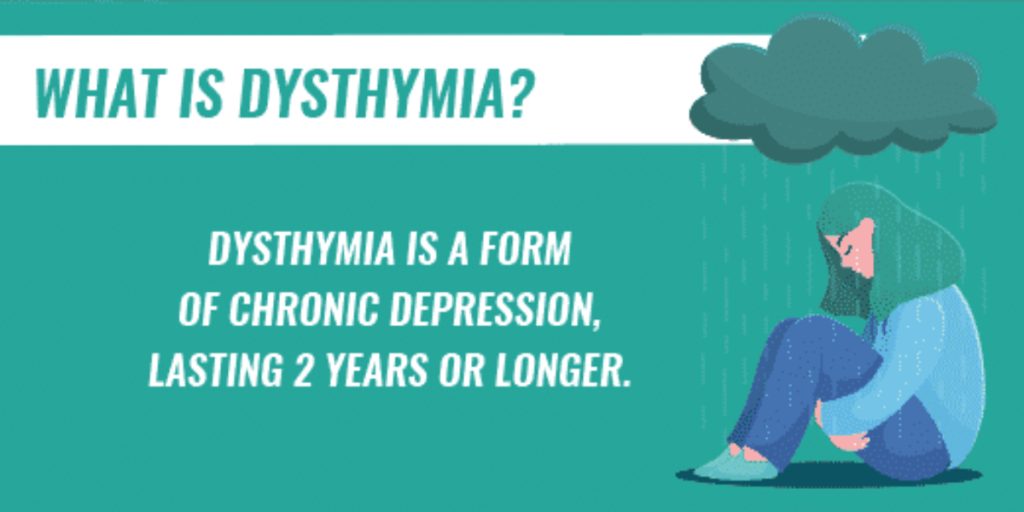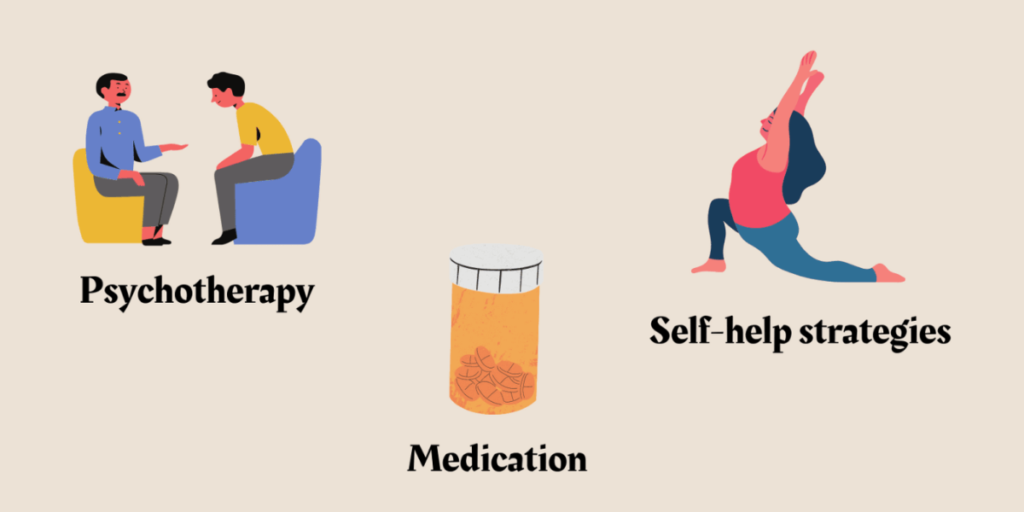Depression which is also known as Major Depressive Disorder (MDD) is a serious mental disorder that negatively impacts how you think, act, and feel. According to a study conducted by the World Health Organization, approximately 3.8% of the population suffers from depression disorder—4% among men and women with an estimated 6% of the total population.
Depression with uncommon symptoms or with improper diagnosis cannot be captured by traditional assessments. A Multidimensional Depression Test (MDT) is then adopted for appropriate diagnosis. Many reasons contribute to depression disorder. As per a report published by the National Institutes of Health, reasons for depression could be any past traumatic experience such as the loss of a loved one, relationship problems, or chronic stress.
Do you ever wonder why after continuous therapy sessions and medication you are unable to get an expected result to cure your depression? Or do you fall back into the same negative patterns once your therapy or treatment ends? It might be the right time to opt for the Multidimensional Depression Test (MDT).
Table of Contents
Understanding Causes of Chronic Depression

For some people, experiencing symptoms of depression is temporary and for others, it comes and goes. Persistent Depressive Disorder which is also known as chronic depression is a condition that stays for a longer period and sometimes permanently.
For such conditions, the diagnostic criteria are constantly evolving. If depression is not treated with the right diagnosis it can be chronic and stays untreatable. The Multidimensional Depression Test can be a new tool that could lead to a proper diagnosis. Let’s first understand the most common factors that contribute to chronic depression.
Genetic Predisposition
Research conducted by McGovern Medical School, chronic depression has a substantial genetic component, with estimates of heritability ranging from 30% to 50%. This shows the importance of investigating the specific genetic factors that may indicate symptoms of chronic depression.
Biological Factors
Biological factors such as brain chemical imbalances can also contribute to depression. An imbalance in chemicals such as Serotonin, Dopamine, and Norepinephrine can disrupt the body’s stress response causing depression.
Psychological factors
Traumatic events, Childhood upbringing, and ongoing stressors in life can come under psychological factors contributing to depression. These causes can also promote negative thinking patterns, self-sabotaging behaviors, and low self-esteem causing depression to stay untreated.
Medical Conditions
Medical conditions that involve chronic pain, neurological disorders, and permanent medical conditions can increase the risk of depression. The emotional and physical burden of living with a chronic illness or condition can contribute to excessive stress and negativity making one fall into depression.
Substance Abuse
This is the most common contributing factor among teens and adults. Substance abuse such as drugs, alcohol, and excessive intake of other legal or illegal medications can be seriously damaging to the brain’s chemical responses. It can permanently damage the nerve response or cause permanent imbalance in the chemical response being one of the most contributing factors to chronic depression.
Personality Traits
Personality traits such as low self-esteem, perfectionism, self-criticism, and Pessimism can add unwanted stress in life making it difficult to socialize. Individuals with these patterns are more likely to be prone to chronic depression.
Exploring Multidimensional Depression Test

Multidimensional depression Test (MDT) is an assessment tool that is designed to assess various aspects of depression an individual might be experiencing. By assessing the cognitive, emotional, behavioral, and physical manifestation of the individual a proper diagnosis is taken with a much more effective treatment routine.
Unlike traditional assessments of observing stress, loss of interest, and level of sadness, the MDT test goes beyond the surface-level symptoms to identify the root causes.
The Multidimensional Depression Test may include assessing various factors in individuals experiencing depression such as,
- Cognitive Symptoms– Negative thinking patterns, self-criticism, and poor concentration are examined.
- Emotional Symptoms– Negative emotional experiences such as low self-esteem, overly emotional reactions, worthlessness, and feelings of guilt are assessed.
- Behavioral Symptoms– Changes in appetite, sleeping habits, and decreased interest in daily habits are examined.
- Physical symptoms– Physical undefined pain, chronic digestive complications, fatigue and lethargies, and body weight imbalance are addressed.
5 Reasons to Consider a Multidimensional Depression Test

The diagnosis of depression is constantly evolving. Most healthcare professionals and therapists detect depression by psychological evaluation and prescribing medication. However, it is difficult to detect or diagnose depression if the symptoms are uncommon. With the improper evaluation of the causes or by just approaching the traditional diagnosis methods it is difficult for professionals to detect the type of depression and their treatment methods.
If you are experiencing depression that is not adequately captured by traditional methods and needs a comprehensive understanding of your conditions then the Multidimensional Depression test is right for you. The Multidimensional Depression test has a treatment method that specializes in completely understanding the causes. It can be as such:
Addresses Undetected Symptoms
Depression can manifest many symptoms which are way beyond just feeling sad or low. MDT can address Cognitive symptoms such as difficulty in concentration and decision making, Emotional symptoms such as changes emptiness, and irritability, Behavioural symptoms such as unhealthy eating habits or sleep patterns, and Physical symptoms such as undetected pain and fatigue.
Personalised Treatment is offered
In the Multidimensional Depression Test, once the symptoms are evaluated, a personalized treatment plan is offered based on your lifestyle and the symptoms. A personalised treatment is known to be more effective and practical to implement.
For example, for your physical symptoms, a tailored holistic approach can be advised and for cognitive symptoms, cognitive behavioral therapy (CBT) is recomended.
Progress is Tracked Throughout the Treatment
The state of your depression can change over time. Depending on the improvement a modified approach can be taken into practice. This observation can be much more beneficial in terms of decreasing the symptoms and curing depression eventually.
Comprehensive Self-Awareness
Throughout the Multidimensional Depression Test, the professional makes sure that you are aware of the causes of your symptoms. Becoming more self-aware of your state can help you avoid any repetitive patterns and help you stay away from habitual negative practices making the treatment more beneficial.
Better Validation
Individuals experiencing depression may slip into a pattern of negative thinking doubting if even the treatment is beneficial to them. By getting the Multidimensional depression test done, individuals are more aware of their symptoms and coping mechanisms. This validation helps them be comfortable with their authenticity and self-acceptance by promoting self-love and a will to improve their lifestyle.
Taking the Multidimensional Depression Test
It is important to remember that free online tests such as these solely initiate consideration of the concept of being examined and cannot provide an entirely accurate diagnosis of your personality or any component of your psychological test.
Many screening tools are available if you want to get a quick evaluation. Below are some of the websites you can visit that provide a result with satisfactory accuracy.
Psycom – This Website offers an assessment with 10 questionnaires that assess your mental state providing a result with the state of depressiveness. Your answers are medically reviewed by renowned psychologists. It also offers quizzes for mental health issues such as bipolar disorder, OCD, ADHD, Borderline Personality disorder, etc.
IDRLabs.com – IDR Labs is a renowned site that offers individual different research. It has quizzes and tests such as IQ Tests, Functions Tests, D&D Class Tests, and Orientation tests. The tests are reviewed by certified authors who have worked professionally with typology and personality testing.
ProProfs Quizzes– ProProfs offers a test containing 15 questions that explore various dimensions of your mental state. The results of this test could be taken as a starting point for a conversation about your well-being.
Bottom Line
Life becomes difficult when we have a toxic friend named Depression. This can keep impacting our lifestyle in a negative way if left untreated. Unlike any other medical condition, Mental health conditions such as Major Depressive Disorder or Depression cannot be cured with just medication. Taking the Multidimensional Depression Test under a healthcare professional’s supervision could be the new beginning of your healing journey.
It requires proper diagnosis, evaluation of the roots causing specific symptoms, and guiding help throughout the treatment. An accurate diagnosis can be made by a physician, healthcare professional, or therapist. that can help you with a multidimensional depression test. In the initial analysis, individuals will be expected to answer several questionnaires of possible depressive symptoms. Followed by the professional will take the respective major into action to provide you with a consultation with necessary personalized strategies.
Frequently Asked Questions
1. Can a Multidimensional Depression Test replace a Healthcare professional?
The Multidimensional Depression Test test can provide satisfactory accuracy to determine the type of diagnosis needed. However, only a healthcare professional can make an appropriate diagnosis based on the test results.
2. Who should take the Multidimensional Depression Test?
Anyone with symptoms of depression or who is chronically showing symptoms of major depressive disorder with a lack of awareness can take the test. Individuals with symptoms in any age range are safe to take the test.
3. Who can diagnose Depression?
Primary care providers often diagnose depression. They refer an individual to a mental health professional such as a mental health therapist, psychiatrist, psychologist, or physician for further evaluation.
4. Is it possible to diagnose depression yourself?
It is not recommended to diagnose your depression yourself even if you are a mental health professional. Self-diagnosis is not helpful. The diagnosis requires proper observation of your behavioral patterns and lifestyle habits that could get missed by the individual.
